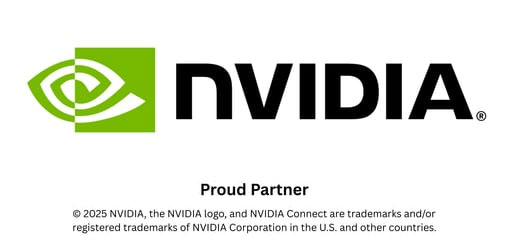If you believe the headlines, European AI and Europe are on the brink of an AI breakthrough. Every week, there’s another press release about a “European champion” – Mistral AI in France, Aleph Alpha in Germany, Silo AI in Finland, the latest pan-European initiative. Add in German Telekom partnering with NVIDIA, Norwegian OpenAI infrastructure build, and it all looks like we are catching up with the US giants.
But the European boardroom question looms large: Are we really building independent, sovereign and SECURE European AI, or just rebranding imported technology and feeding our company secrets to intelligence services and calling it progress?
Let’s cut through the marketing, the regulatory fanfare, and the unicorn hype to get to the facts that actually matter for Europe’s future.
Europe's "National Champions" - Or National Hostages?
Let’s start with the reality behind the leading names:
Mistral AI (France): The poster child for French AI innovation, with strong government backing and big funding rounds.
Aleph Alpha (Germany): Promoted as the German alternative to OpenAI, focused on explainable, enterprise-ready LLMs.
Silo AI (Finland): Now positioning itself as Europe’s largest private AI lab, recently going all-in with AMD for its compute stack.
German Telekom + NVIDIA: Germany’s “sovereign” AI cloud partnership, meant to offer European businesses an alternative to the US Big Tech clouds.

On the surface, these all sound pretty good, and they sound like real progress. But a closer look exposes a much more complicated, and, for the cautious board member, a worrying landscape.
The Intelligence Law Problem: Who Really Owns "Sovereignty"?
Few outside the deep compliance and infosec world are talking openly about this: Any European AI company headquartered in France or Germany is directly subject to local intelligence and surveillance laws.
In France, the Intelligence Act (“Loi Renseignement”) gives state agencies sweeping powers to require data access from local tech companies, even in the name of “national security” (see itnews).
In Germany, the new Federal Intelligence Service Act (BND law, as amended in 2022) also mandates cooperation and data sharing with the intelligence agencies when required, allowing state trojans and telephone hacking, among other “perks”, completely without cause (see freiheitsrechte).
This is not a conspiracy theory. These laws are on the books and can override even GDPR and commercial agreements. Most non-European press either ignore this or assume “Europe = safe and private.” But for any business with serious regulatory exposure, this is not a theoretical risk.
If you deploy an LLM from Mistral or Aleph Alpha for your confidential data or mission-critical workflows, ask yourself: Is your data truly private and secure, outside the reach of all state surveillance?
And we didn’t even mention Silo AI yet. The marketing fluff is all nice and dandy, but the reality still remains – Silo AI was acquired by AMD and is a subsidiary of a US corporation, subject to the US Cloud Act and FISA 702. As is any OpenAI-owned data centre in Norway, or anywhere else, for that matter.
No company or platform today offers a genuinely pan-European, intelligence law-neutral, hardware-sovereign AI platform. The result: Every “champion” comes with legal and technical dependencies that few buyers fully understand.
Capital Still Flows to Hype

One reason for this fragmentation is how Europe funds AI. While the US and China put billions into strategic infrastructure and deep tech, Europe still favours small, “unicorn bets” and fast exits.
Even with Mistral’s €600M round (TechCrunch, 2024) and Aleph Alpha’s $500M raise (Sifted, 2023), the total capital is a rounding error next to Anthropic’s latest $170B pre-money valuation (Reuters, 2025).
Europe’s largest state-backed fund (EIC Fund) has a €3.5B portfolio (EIC, 2025), but most investments are under €10M. We are still betting on volume, not scale.
Media Silence: The Missing Debate About Hidden Laws
Perhaps the most damaging issue is the near-complete absence of media coverage about these intelligence law dependencies.
Major European press outlets are quick to celebrate “AI sovereignty” and the next Mistral funding milestone. But they rarely discuss how French, German or other national laws might expose customer data to state agencies, or limit true independence.
If Europe’s C-suites and public sector buyers are not fully aware of these dependencies, we risk sleepwalking into another generation of lock-in and compliance headaches. There is no shame in national security laws; every country has them, but ignoring their impact on data privacy, vendor risk, and business continuity is a board-level failure.
What Europe Needs Now: Fact-Based, Long-Term Strategy
1. Stop chasing unicorns, start funding platforms
Europe must move beyond unicorn headlines and invest in real infrastructure. As the US experience shows, world-class platforms are built over decades, not sprints. We need an institutional funding mindset – patient, strategic, and focused on European control over the entire stack.
2. Demand real transparency
No more hand-waving about “sovereign AI” without hard questions.
Who controls the hardware?
Which intelligence laws apply, and are they harmonised across the EU?
Can the vendor guarantee immunity from extra-national data demands?
3. Build for generational impact, not for the next round
If Europe wants a say in global AI, we must back builders who are playing for legacy, not just valuation. Regulatory compliance is not enough; we need structural independence – or we will always be renters, never owners, of our very own future.
Final Take: A Call for Transparency
The opportunity is there. Europe leads the world in ethical AI, regulation, and, some could argue that also in talent. But as long as our best AI efforts remain subject to national intelligence laws, fragmented hardware dependencies, and media silence on the real risks, we are not sovereign. We are just building a new layer of dependence – this time, with European flags, but the same vulnerabilities underneath.
For those of us building for the long term, the message is clear:
Ask harder questions, fund real independence, and don’t settle for unicorn headlines. Europe’s competitive future depends on it.
Victor A. Lausas
Chief Executive Officer
Subscribe to North Atlantic’s email newsletter and get your free copy of my eBook,
Artificial Intelligence Made Unlocked. 👉 https://www.northatlantic.fi/contact/
Discover Europe’s best free AI education platform, NORAI Connect, start learning AI or level up your skills with free AI courses and future-proof your AI knowledge. 👉 https://www.norai.fi/






